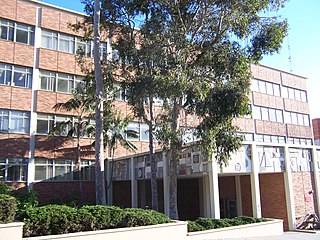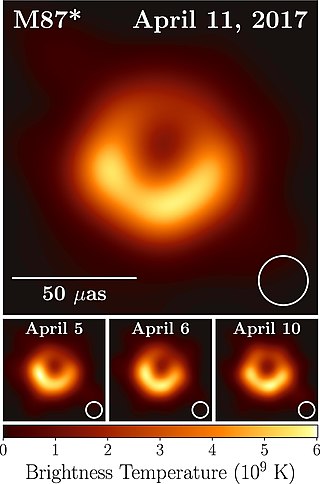Related Research Articles
Astrology is a range of divinatory practices, recognized as pseudoscientific since the 18th century, that propose that information about human affairs and terrestrial events may be discerned by studying the apparent positions of celestial objects. Different cultures have employed forms of astrology since at least the 2nd millennium BCE, these practices having originated in calendrical systems used to predict seasonal shifts and to interpret celestial cycles as signs of divine communications. Most, if not all, cultures have attached importance to what they observed in the sky, and some—such as the Hindus, Chinese, and the Maya—developed elaborate systems for predicting terrestrial events from celestial observations. Western astrology, one of the oldest astrological systems still in use, can trace its roots to 19th–17th century BCE Mesopotamia, from where it spread to Ancient Greece, Rome, the Islamic world, and eventually Central and Western Europe. Contemporary Western astrology is often associated with systems of horoscopes that purport to explain aspects of a person's personality and predict significant events in their lives based on the positions of celestial objects; the majority of professional astrologers rely on such systems.
Donald Edward Osterbrock was an American astronomer, best known for his work on star formation and on the history of astronomy.
Astrological belief in relation between celestial observations and terrestrial events have influenced various aspects of human history, including world-views, language and many elements of culture. It has been argued that astrology began as a study as soon as human beings made conscious attempts to measure, record, and predict seasonal changes by reference to astronomical cycles.

Babylonian astronomy was the study or recording of celestial objects during the early history of Mesopotamia. The numeral system used, sexagesimal, was based on sixty, as opposed to ten in the modern decimal system. This system simplified the calculating and recording of unusually great and small numbers.

John Roy Whinnery was an American electrical engineer and educator who worked in the fields of microwave theory and laser experimentation.

Babylonian astrology was the first known organized system of astrology, arising in the second millennium BC.
David Edwin Pingree was an American historian of mathematics in the ancient world. He was a University Professor and Professor of History of Mathematics and Classics at Brown University.
Thomas Cleveland Holt is an American historian, who is the James Westfall Thompson Professor of American and African American History at the University of Chicago. He has produced a number of works on the people and descendants of the African Diaspora. He served as president of the American Historical Association in 1994.

The UCLA College of Letters and Science is the arts and sciences college of the University of California, Los Angeles (UCLA). It encompasses the Life and Physical Sciences, Humanities, Social Sciences, Honors Program and other programs for both undergraduate and graduate students. It is often called UCLA College or the College, which is not ambiguous because the College is the only educational unit at UCLA to be currently denominated as a "college." All other educational units at UCLA are currently labeled as schools or institutes.

Barry Stroud was a Canadian philosopher and professor at the University of California, Berkeley. Known especially for his work on philosophical skepticism, he wrote about David Hume, Ludwig Wittgenstein, the metaphysics of color, and many other topics.
Noel Mark Swerdlow was a professor emeritus of history, astronomy and astrophysics at the University of Chicago. He was a visiting professor at the California Institute of Technology.
John Clarke is a British physicist and a Professor of Experimental Physics at University of California at Berkeley.

Feryal Özel is a Turkish-American astrophysicist born in Istanbul, Turkey, specializing in the physics of compact objects and high energy astrophysical phenomena. As of 2022, Özel is the department chair and a professor at the Georgia Institute of Technology School of Physics in Atlanta. She was previously a professor at the University of Arizona in Tucson, in the Astronomy Department and Steward Observatory.
Ann Banfield, is a professor Emeritus of English at the University of California, Berkeley.

Erica Reiner was an American Assyriologist and author. From 1974, she was editor of the Chicago Assyrian Dictionary, which was published in 21 volumes over 55 years, being completed in 2011 after her death. Reiner was associated with the Oriental Institute at the University of Chicago. Her work concentrated on developing the Chicago Assyrian Dictionary, the basic reference work for understanding the Akkadian language, the predominant language of Mesopotamia from 2400 BC to 100 AD.

Michael A. Marletta is an American biochemist. He was born in Rochester, New York, the son of Italian immigrants. He graduated from the State University of New York at Fredonia in 1973 with an A.B. degree in biology and chemistry, and from the University of California, San Francisco in 1978 with a Ph.D. degree in pharmaceutical chemistry, where he studied with George Kenyon. He was a postdoctoral fellow with Christopher T. Walsh at MIT from 1978-1980 and continued as a faculty member at MIT from 1980-1987 whereupon he joined the faculty of the University of Michigan, Ann Arbor. He was John G. Searle Professor of Medicinal Chemistry in the college of pharmacy and professor of biological chemistry at the University of Michigan. In 2001, he moved to the University of California, Berkeley to assume roles as Aldo DeBenedictis Distinguished Professor of Chemistry and professor of biochemistry and molecular biology, and served as the chair of the department of chemistry from 2005 until 2010. He was a Howard Hughes Medical Institute Investigator. From January 2012 to August 2014, Marletta was president and CEO of The Scripps Research Institute in La Jolla, California, succeeding Richard Lerner.
Arthur Paul Shimamura was a professor of psychology and faculty member of the Helen Wills Neuroscience Institute at the University of California, Berkeley. His research focused on the neural basis of human memory and cognition. He received his BA in experimental psychology from the University of California, Santa Barbara in 1977 and his PhD in cognitive psychology from the University of Washington in 1982. He was a post-doctoral fellow in the laboratory of Larry Squire, where he studied amnesic patients. In 1989, Shimamura began his professorship at UC Berkeley. He has published over 100 scientific articles and chapters, was a founding member of the Cognitive Neuroscience Society, and has been science advisor for the San Francisco Exploratorium science museum.
Dawn Song is a Chinese American academic and is a professor at the University of California, Berkeley, in the Electrical Engineering and Computer Science Department.
References
- ↑ "Professor Francesca Rochberg". Archived from the original on 2010-06-09. Retrieved 2010-02-25.
- ↑ "UC Berkeley > AHMA > Faculty Bio". Archived from the original on 2010-06-18. Retrieved 2010-02-25.
- ↑ UC Riverside Professor Named Guggenheim Fellow
- ↑ "John Frederick Lewis Award". American Philosophical Society. Retrieved December 11, 2024.
- ↑ "Francesca Rochberg - John Simon Guggenheim Memorial Foundation". Archived from the original on 2011-06-22. Retrieved 2010-02-25.